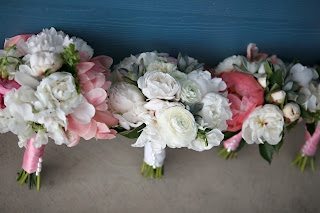Welcome back to The Friday Five!
Today we're talking ways to reduce the cost of your wedding with these 5 tips:
1. Trim the guest list. This is probably the most popular tip but it's true. Trimming down your guest list can be a touchy subject but it's basic math - the less people the lower the overall cost. Start by talking to your fiancé and your families. You don't want to offend anyone. Ask politely about that second cousin you've never met and explain your budget concerns. Communication with those involved is key especially if they are helping with cost.
*Bonus tip: you don't HAVE to give everyone a +1 but DO be consistent with it
2. Wedding Brunch. We've talked about the wedding off-season before. Not only can the off-season be a less expensive time to tie the knot but sometimes a different time of day can be too. A daytime wedding can be fun and everyone loves brunch. Am I right? Your guests don't have to know it was a budget conscious decision. Have fun with it!
3. Buy your dress used. That's right! Check out our previous blog post to learn more.
4. Multi-use decor. Choose floral arrangements that can be moved from your ceremony site and repurposed as decor at your reception. Think about where the bridal party can place their bouquets - those little beauties should not go to waste either. Your florist should have some more great ideas as well.
*Bonus Idea: Place cards that double as favors
5. The signature cocktail. I don't have to tell you booze for a party is expensive and you certainly don't want your guests to have to pay for anything while attending your event. An open bar of beer, wine and a signature cocktail of your choice can still be a hit. It's personalized yet budget friendly.
__
We hope these tips helped with some of your budget dilemmas. If you'd like us the elaborate on any of these tips or have any tips of your own please leave them in a comment below.
Happy weekend & as always, happy planning!
xo.
xo.








